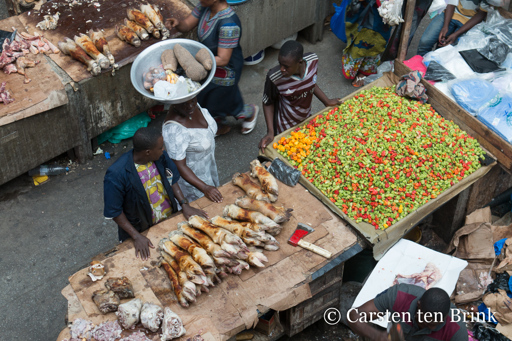- cross-posted to:
- farming@slrpnk.net
- climate_lm@slrpnk.net
- cross-posted to:
- farming@slrpnk.net
- climate_lm@slrpnk.net
ABIDJAN — In recent months, the town of Soubré in the southwest of Côte d’Ivoire has experienced a shortage of staple products in local markets. Some of the most widely consumed foods, such as plantain, cassava and tomato, have become scarce or unaffordable. This could be an early sign of the broader impact climate change may have on both rural and urban communities in West Africa. Soubré resident Melaine Kouassi tells Mongabay that plantains have become difficult to find. “In the past, it was normal to have periods when certain products were hard to come by,” she says. “But now, we can go almost an entire year without having enough in the markets. Take plantain, for example: since last year, there have hardly been any available.” Kouassi says a bunch of five plantains now costs 1,000 CFA francs ($1.75) — two to three times what it cost just three years ago. She also notes that the price of tomatoes has doubled over the past year. Fatima Koné, a young woman who sells farm produce in Soubré, says there’s a growing shortage in the countryside. “I go to the farmers’ fields to get supplies, but right now there are no plantains — we just can’t find any. And the little we do find is being sold at much higher prices,” she says. The price of commodities such as plantain has risen sharply in Côte d’Ivoire in recent years. Vendors and growers say unpredictable weather conditions have reduced yields. Image by Felix…This article was originally published on Mongabay
From Conservation news via this RSS feed


